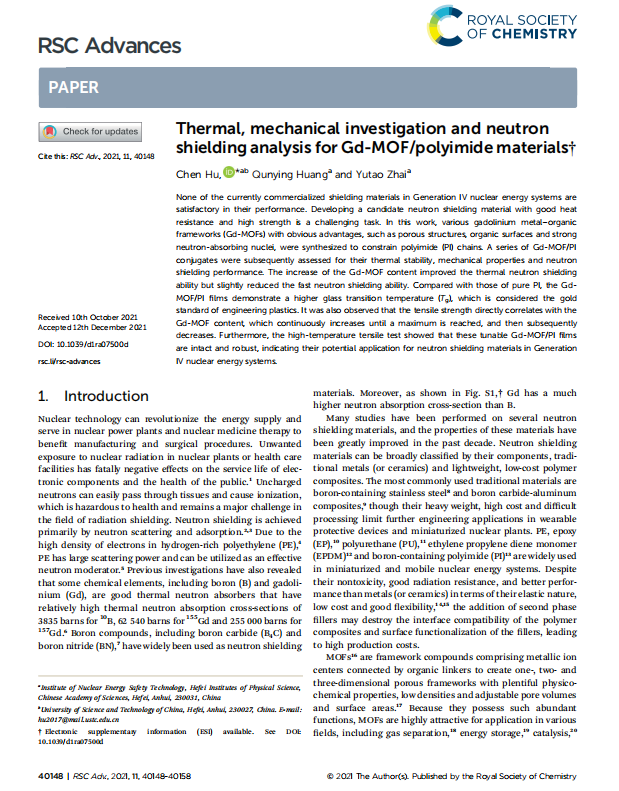
目前在第四代核能系统中商业化的屏蔽材料的性能都不能令人满意。开发一种耐热性好、高强度好的候选中子屏蔽材料是一项具有挑战性的任务。本研究合成了多种具有明显优势的钆金属有机框架(Gd-MOFs),如多孔结构、有机表面和强中子吸收核,以约束聚酰亚胺(PI)链。随后评估了一系列Gd-MOF/PI偶联物的热稳定性、力学性能和中子屏蔽性能。Gd-MOF含量的增加提高了热中子屏蔽能力,但略微降低了快速中子屏蔽能力。与纯PI薄膜相比,Gd MOF/PI薄膜具有更高的玻璃化转变温度(Tg),这被认为是工程塑料的金标准。抗拉强度与Gd-MOF含量直接相关,Gd-MOF含量不断增加,直到达到最大值,然后逐渐下降。此外,高温拉伸试验表明,这些可调的Gd-MOF/PI薄膜是完整和坚固的,表明它们在第四代核能系统中的中子屏蔽材料中的应用潜力
None of the currently commercialized shielding materials in Generation IV nuclear energy systems are satisfactory in their performance. Developing a candidate neutron shielding material with good heat resistance and high strength is a challenging task. In this work, various gadolinium metal–organic frameworks (Gd-MOFs) with obvious advantages, such as porous structures, organic surfaces and strong neutron-absorbing nuclei, were synthesized to constrain polyimide (PI) chains. A series of Gd-MOF/PI conjugates were subsequently assessed for their thermal stability, mechanical properties and neutron shielding performance. The increase of the Gd-MOF content improved the thermal neutron shielding ability but slightly reduced the fast neutron shielding ability